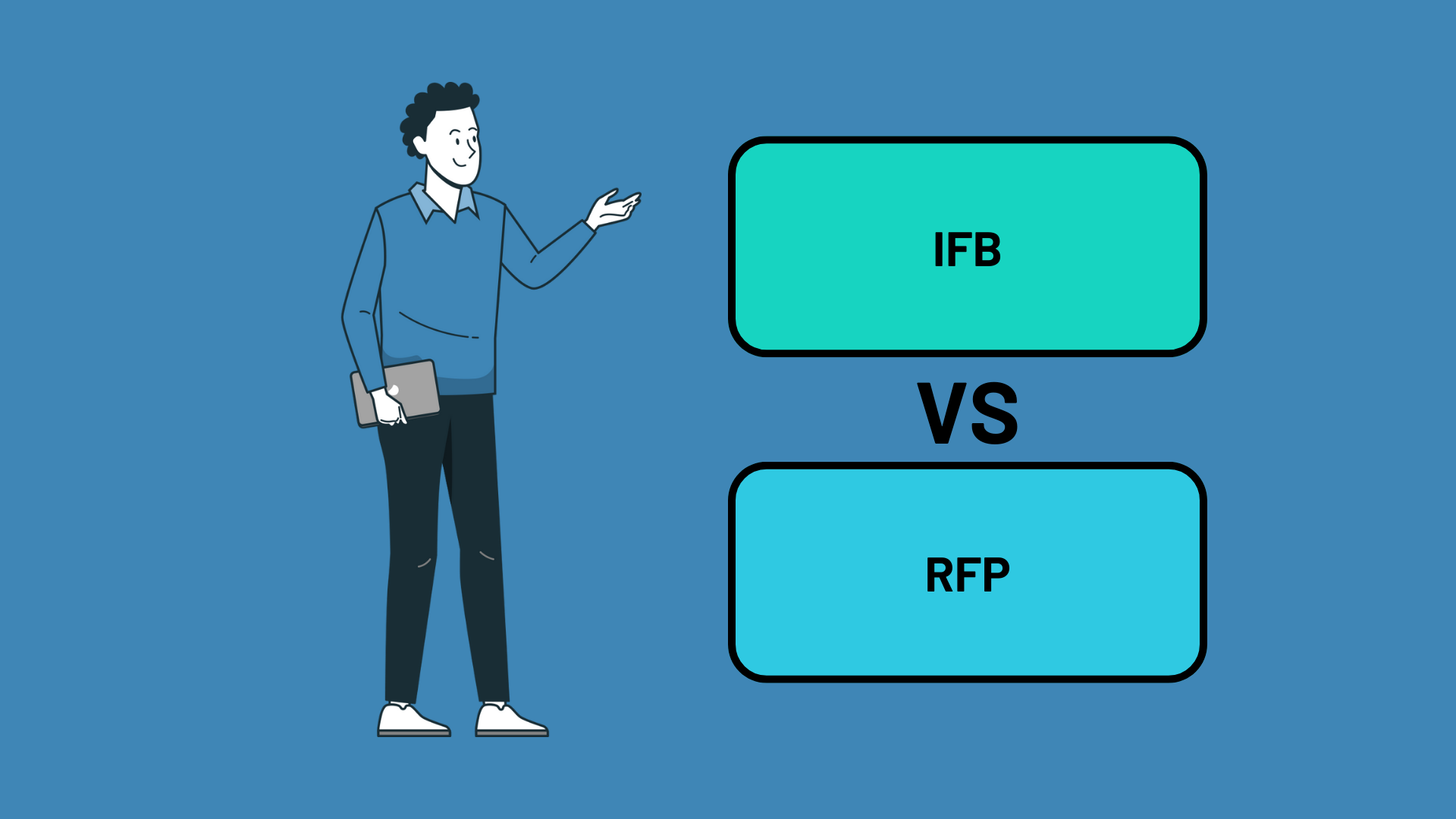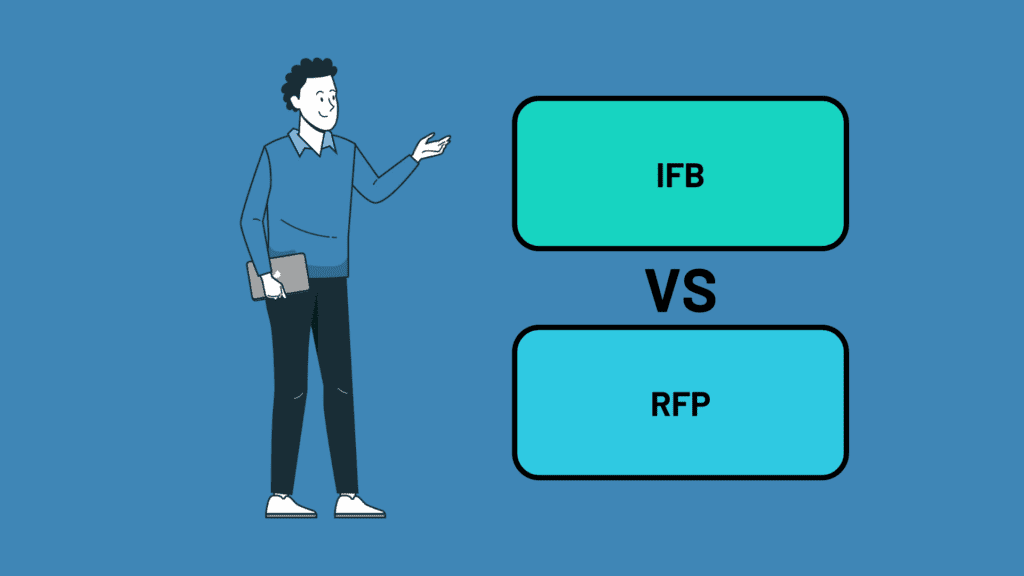IFBs and RFPs Explained


With so many initialisms in the bidding process, it can be difficult to differentiate exactly the purpose of each proposal type. There are RFPs, IFBs, RFQs, RFIs and myriad other varieties of requests and invitations (here’s a glossary). Each path offers its own benefits and compliance issues, as well as drawbacks, depending on your organization’s needs and goals. After all, the RFP process looks much different for a vendor than it does for a responder! So, let’s review two of the most important types of bids: the Invitation for Bid (IFB) and Request for Proposal (RFP).
First, let’s go over the details of what IFBs and RFPs are.
IFB
An Invitation to Bid, also called an Invitation for Bids, is usually a sealed bidding process used when an organization clearly understands its product or project needs. Therefore, IFB evaluations are heavily determined by pricing. An Invitation to Bid does still value and consider vendors’ experience, but an organization using an IFB will most likely already have a clear description of its project’s scope, requirements and proposer qualifications.
RFP
A Request for Proposal, on the other hand, is a process designed to illuminate new ideas and plans to help the organization accomplish its desired task or tasks. An organization utilizing an RFP knows where it wants to go but is less clear on how to get there.
Differences
So, RFP vs IFB. Let’s talk about differences.
Whereas an IFB will evaluate proposals largely based on price, RFPs will consider price as well as details of the bidding organization’s operational plan, staff experience and education, timeline estimates and more. The review process for an RFP is typically longer than those of invitations for bids. Request for Proposal processes, for example, often include additional interviews and/or negotiations for short-listed vendors, whereas an IFB will generally award its contract to the lowest qualified bidder.

Which is Right for You?
Imagine a state government that knows they need to build a road between a library and a school. They know the location, material needs and most other specifications of their project already. What they need is a transparent process to help them survey the market and ascertain the most qualified construction firm offering the best price. This is the kind of project IFBs were designed to handle. If, however, that same state government wants to build a website for its new library? They likely won’t yet know exactly what they want for this website. So, that’s when an RFP is a better option.
Timing and transparency are also important factors of consideration for organizations weighing RFP vs IFB processes. If an organization has a clear understanding of its product or project needs, an IFB offers a standardized procedure to receive a number of offers quickly. Once you can determine that the proposer meets your desired qualifications, simple arithmetic can tell you which option is most price-competitive.
Additionally, because the evaluation process is much more straightforward, organizations needing to maintain transparency often take the IFB route. This is why government agencies and academic institutions so often leverage IFB processes for their vendor needs.
Don’t overlook the benefits of a well-managed RFP process, though! If your organization is seeking a more comprehensive analysis of potential project partners, RFPs are an excellent strategy to pursue. A strong process can help your team gather an array of innovative strategies for success. RFPs can prove beneficial in identifying products or implementations your team may not have even previously considered!
Unsure About Your Bid Journey? Ask for Directions!
Now that you know more about the differences between a Request for Proposal and an Invitation to Bid (RFP vs IFB), you can prepare to help your business climb to new heights through the bidding process. Every organization, though, has its own unique priorities and factors to consider.
Luckily, The Bid Lab is here for organizations in need of any level of guidance on their proposal journey. Our experts work with clients on both sides of the bidding process to manage RFPs. We even created Bid Banana, the user-friendly RFP search engine, to help you find perfect RFPs. Whether you’ve never completed a proposal before or are looking to enhance your current process, The Bid Lab can help!
So, want to learn more? Contact us today for a complimentary consultation by calling 1-844-4BIDLAB or emailing respond@thebidlab.com.
